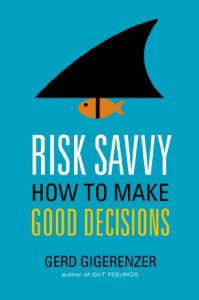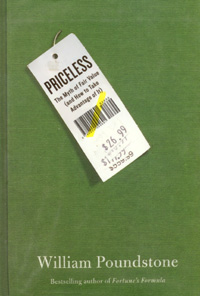
Risk Savvy: How to Make Good Decisions
by Gerd Gigerenzer
Gigerenzer makes a distinction between risk and uncertainty. He uses the term risk “for a world where all alternatives, consequences, and probabilities are known… Most of the time, however, we live in a changing world where some of these are unknown: where we face unknown risks, or uncertainty. The world of uncertainty is huge compared to that of risk… We have to deal with ‘unknown unknowns.’”
Continue reading “Risk Savvy: How to Make Good Decisions”

